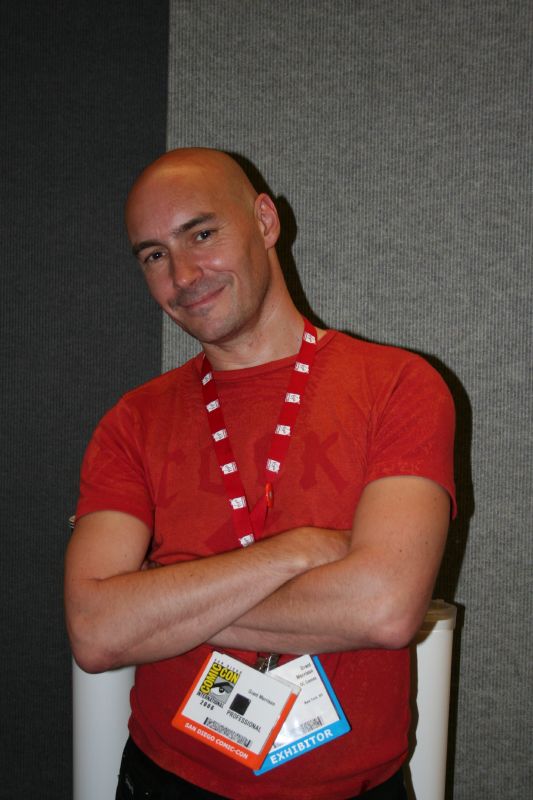Frases célebres de Grant Morrison
Grant Morrison: Frases en inglés
2003
http://www.comicon.com/cgi-bin/ultimatebb.cgi?ubb=get_topic&f=36&t=001597
On comics
http://uk.comics.ign.com/articles/950/950703p4.html
On life
2014
http://www.blastr.com/2014-9-12/grant-morrisons-big-talk-getting-deep-writer-annihilator-multiversity
On life
2004
https://web.archive.org/web/20040803001942/http://www.popimage.com/content/grant20044.html Popimage interview
On comics
https://web.archive.org/web/20040803001942/http://www.popimage.com/content/grant20044.html Popimage interview
On The X-Men
1992
http://web.archive.org/web/20040920205650/www.crgn.demon.co.uk/morrison/irony3.jpg
On comics
2004
https://web.archive.org/web/20040803000924/http://www.popimage.com/content/grant20041.html Popimage interview
On comics
2003
http://www.comicon.com/cgi-bin/ultimatebb.cgi?ubb=get_topic&f=36&t=001597
On himself
2003
http://www.comicon.com/cgi-bin/ultimatebb.cgi?ubb=get_topic&f=36&t=001597
On comics
2004
http://www.popimage.com/content/grant2004.html
On life
2003
http://www.comicon.com/cgi-bin/ultimatebb.cgi?ubb=get_topic&f=36&t=001597
On life
2004
https://web.archive.org/web/20040803000924/http://www.popimage.com/content/grant20041.html Popimage interview
On comics
http://www.newsarama.com/comics/100831-Morrison-Superman8.html
On comics
